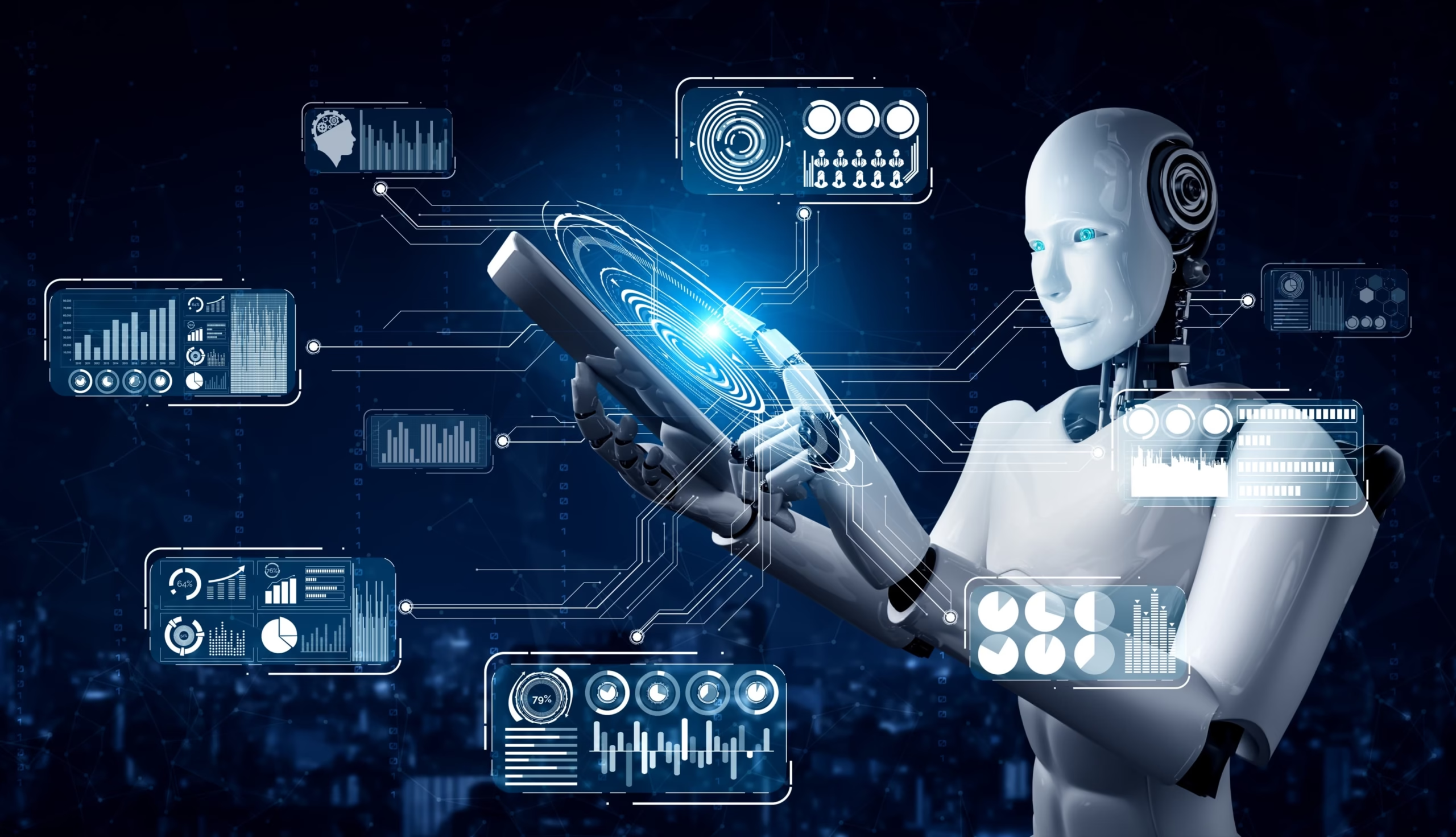Introduction
In the rapidly evolving business landscape, AI and automation are at the forefront of driving efficiency, reducing costs, and enhancing decision-making processes. Organizations across various industries are leveraging these technologies to gain a competitive edge and improve overall productivity.
The Role of AI and Automation in Business
1. Enhancing Decision-Making with AI
Artificial Intelligence enables businesses to analyze vast amounts of data quickly, leading to informed and strategic decision-making.
2. Improving Efficiency and Reducing Costs
Automation minimizes human intervention in repetitive tasks, reducing errors and lowering operational costs.
Key AI and Automation Applications
1. AI in Customer Service
- Chatbots and virtual assistants
- Personalized customer interactions
- Sentiment analysis
2. AI in Marketing
- Predictive analytics
- AI-driven content creation
- Customer segmentation
3. AI in HR and Recruitment
- Automated resume screening
- AI-driven interview processes
- Employee engagement analytics
4. AI in Supply Chain Management
- Inventory optimization
- Automated demand forecasting
- Real-time tracking systems
5. AI in Finance
- Fraud detection
- Algorithmic trading
- Automated compliance and risk management
Benefits of AI-Powered Automation
Increased Productivity
Automation eliminates mundane tasks, allowing employees to focus on strategic initiatives.
Cost Reduction
Companies save costs on labor and operational inefficiencies by automating repetitive tasks.
Enhanced Accuracy
AI-powered tools significantly reduce human errors, ensuring precision in operations.
Challenges and Considerations
Data Privacy Concerns
With AI handling large volumes of data, businesses must ensure compliance with privacy regulations.
Workforce Displacement
Automation may replace certain jobs, necessitating workforce reskilling programs.
High Initial Investment
AI implementation can be expensive, requiring a well-planned strategy for ROI.
Future Trends in AI and Automation
AI and IoT Integration
The combination of AI with IoT enhances real-time data collection and analysis.
Hyperautomation
Advanced automation tools that integrate AI, machine learning, and robotic process automation (RPA).
AI Ethics and Governance
As AI adoption grows, ethical AI policies and governance frameworks will become more crucial.
Conclusion
AI and automation are transforming business operations across industries. Companies that embrace these technologies will experience increased efficiency, reduced costs, and enhanced decision-making capabilities.
Top 10 AI-Powered Automation Tools to Boost Efficiency in 2025
| Tool Name | Description | Industry Applications |
|---|---|---|
| UiPath | Leading RPA platform for process automation | Finance, Healthcare, Retail |
| Blue Prism | Intelligent automation software | Banking, Telecom, Insurance |
| Automation Anywhere | Cloud-native automation platform | Healthcare, Supply Chain |
| Zapier | No-code workflow automation | Marketing, E-commerce |
| IBM Watson | AI-driven cognitive computing | Customer Service, HR |
| Microsoft Power Automate | Workflow automation tool | IT, Customer Support |
| WorkFusion | AI-powered business process automation | Finance, Insurance |
| Pega AI | AI-powered decision automation | Banking, Insurance |
| Salesforce Einstein | AI-driven CRM automation | Sales, Customer Relations |
| Google Cloud AI | AI tools for business intelligence | Data Analysis, Cloud Computing |
